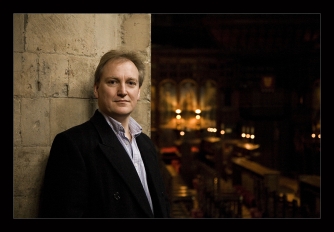Details
Weston Hall - University of West London
St Mary's Road
Ealing
London
W5 5RF
England
Programme
Gregorio Allegri – Miserere
Wolfgang Amadeus Mozart – Clarinet Concerto in A major, K.622
Wolfgang Amadeus Mozart – Requiem in D minor, K.626
Performers
Anna Hashimoto – basset clarinet
Katie Trethewey – soprano
Martha McLorinan – mezzo-soprano
Nicholas Madden – tenor
Stephen Kennedy – baritone
Nigel Short – Conductor
English Chamber Orchestra
Tenebrae Choir
Other concerts in this Series (+)
Programme Note
The English Chamber Orchestra and Tenebrae Choir (conducted by Nigel Short) join forces for a programme of two of Mozart's best-loved compositions, preceded by Allegri's ever-popular Miserere. The Clarinet Concerto was Mozart's last purely instrumental piece, composed for virtuoso soloist Anton Stadler who gave the first performance (probably on basset clarinet, as heard in tonight's performance) in Prague in October 1791, less than two months before Mozart's death. When we hear that gloriously simple first movement we know that we are in the world of the greatest tunesmith who ever lived. But that blinds us to how he constructs the work so seamlessly and how innovatively he uses the clarinet; note for instance how the soloist accompanies the orchestra with a keyboard-style Alberti bass at the return of the main theme. Truly, this is a dialogue concerto, an instrumental drama which cares little for pure virtuouso display. The second movement was made famous by the film Out of Africa, that wonderful sequence of overlapping phrases shared between soloist and orchestra after the clarinet has sung out the main theme. The cheerfulness of the finale gives little hint of the composer's impending death.
Franz Xavier Sussmayr (1766-1803) not only completed Mozart's Requiem but also wrote pieces for Anton Stadler's basset clarinet.
The story of Mozart's Requiem has occupied scholars since the composer died. The Requiem had been a commission by Count Franz von Walsegg to commemorate the death of the Countess a year earlier. The Count wanted to pass off the work as his own and Mozart wanted the money; hence all the secrecy. Mozart began work but died on 5 December 1791; we do, unusually, have his original manuscript and can see that he fully composed and orchestrated the Introit, made a detailed draft of the Kyrie and the Dies Irae sequence and wrote out the first eight bars of the Lacrymosa in the Offertory.

 Your events at Classical Events
Your events at Classical Events

